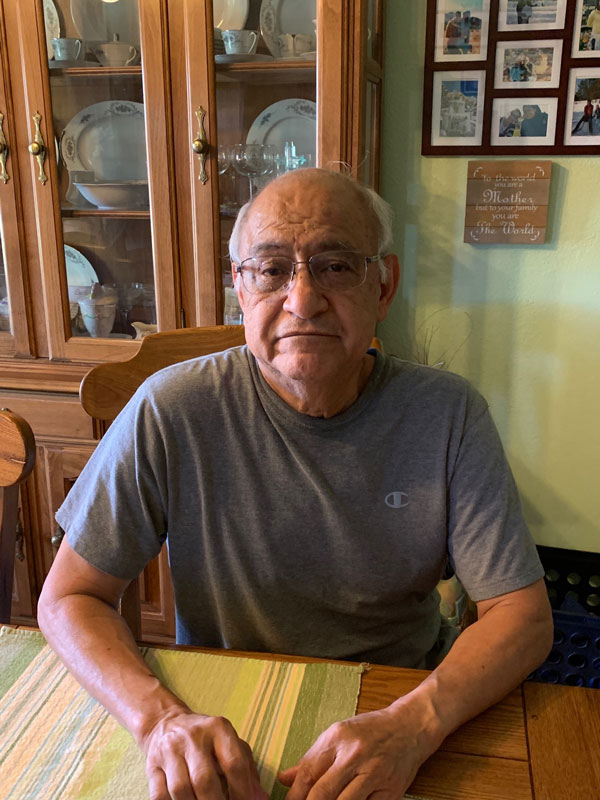
Manuel Quintanar is Arizona...through and through.
He is a teacher, a father, a grandfather. Manuel attended Casa Grande High School, then proceeded to teach there for 35 years. After he retired, he came back as a substitute – and at one point, a coach. His dedication to the community shines through in his work over the years.
Building community, locally
Manuel attended Arizona State University on a track and field scholarship while pursuing a degree in education. He did his student teaching at Tempe High School and eventually switched his focus to become an English teacher. During his career, Manuel taught sophomore English, junior advanced-level English, and AP language.
Since he's taught at the same school for so many years, he has actually taught many of his students' parents or siblings. Along with teaching many people's families, he's also taught members of his own. Manuel taught his daughter's sophomore English class, where she had trouble calling him "Dad" when raising her hand to ask a question. His son tried to join Manuel's class as well, but wasn't so lucky because Manuel's class was bursting at the seams with students.
Family or otherwise, Manuel is confident he's made a true impact on the students coming through his classroom. Manuel saw an influx of former students follow a similar path that he did. They came back to Casa Grande to teach. This legacy has further strengthened Casa Grande's sense of community. Manuel simply says that it makes school feel "more like home."
Retirement...sort of
Manuel enjoyed full-time teaching and all the extra duties that came with it, but there was always plenty of grading to do – essays, projects, and reports – and he spent 12-20 hours a week outside the classroom doing extra work.
So, when it came time for him to retire, he decided to choose which parts of teaching he could take or leave. As a substitute, he gets to maintain his presence in the classroom without shouldering the weight of the extra hours responsibilities.
Manuel's time of teaching five days a week, every week has passed. Instead, with long-term substitute situations, he opts instead to teach three days a week while supplementing the lesson plans and grading.
Armed with more than 800-1,000 lesson plans that he's created, Manuel has found a unique place as a mentor to substitutes and full-time teachers around him. He knows what works for what grade levels, and archives assignments that go with each lesson. Manuel enjoys helping the alternate teacher come up with plans – especially if they've never taught English before, acting more as a support system to both the teacher and the students.

Since Manuel has taught at the same school for so many years, he has actually taught many of his students' parents or siblings – including his own children.
Advice for substitutes
Of course, the atmosphere of teaching is constantly changing. There's no way it could stay the same over the amount of time that Manuel has been in the classroom. But he has plenty of ways in which he has adapted.
Be Positive
"Come in positive," Manuel said. "If you go in there with a negative attitude, it's not going to help anyone."
Be firm
He emphasizes standing your ground as a teacher. The kids must understand that they won't be allowed to walk all over you – that you can be firm while remaining positive and engaging. Implementing discipline isn't always easy, but by putting rules and expectations in place from the beginning, you earn the respect of even the worst-behaving students. You can create a relationship and a rapport with them, and therefore create a successful environment that is conducive to learning.
Be adaptable
Curriculum changes, and so do student mindsets. It's a mistake to think we can only teach or learn in one direction, or with one method.
Manuel Quintara has been in the same school for almost his entire career. He has seen the district go through its ups and downs - faculty changes, student body shifts, and the steady flow of students in and out of the doors. He's taught families and created a constant for students who need stability. He's done so much good not only for the school and his own family, but for the community in whole. The Casa Grande and ESI communities are lucky to have him as part of the family.
When it came time for him to retire, Manuel decided to choose which parts of teaching he could take or leave. As a substitute, he gets to maintain his presence in the classroom without shouldering the weight of the extra hours responsibilities.
